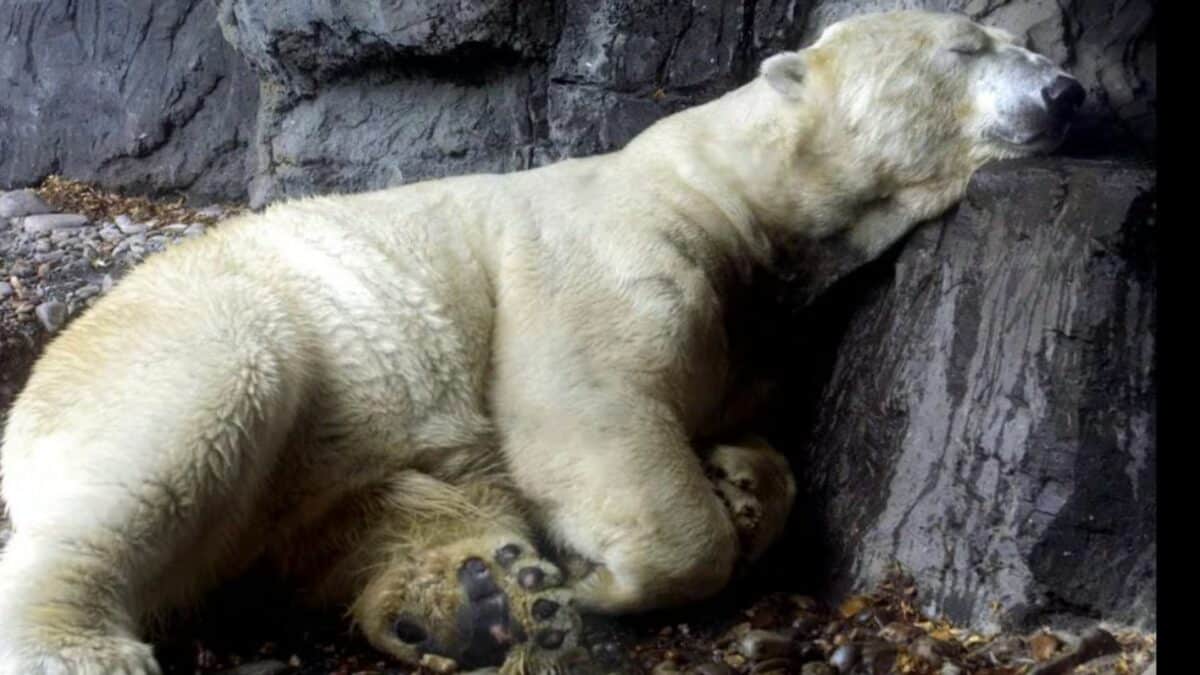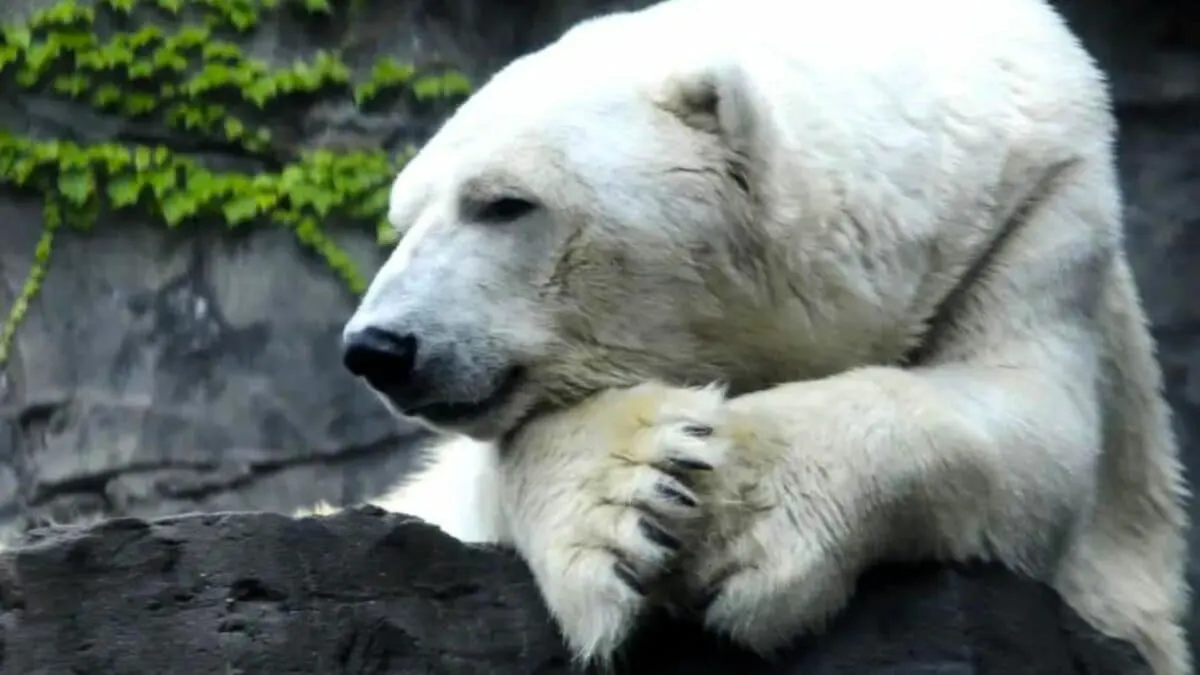Mental health issues are just as serious and urgent as physical wounds – the same goes for animals. This is the tale of Gus, a depressed polar bear, who became the first zoo animal to be prescribed Prozac for his mental health struggles.
We can only hope that Gus cheered up. Meanwhile, the root of his depression should maybe be in bigger focus rather than its symptoms.
Introducing Gus

Gus was born in 1985 at the Toledo Zoo and later moved to the Central Park Zoo in 1988.
He gained fame in the 1990s for his peculiar behavior of swimming obsessively in an 8-figure for up to 12 hours a day. This behavior, seen as a sign of mental distress, led him to be dubbed “neurotic” and “depressed,” reflecting the stress of living in a confined space.
Although a serious and heartbreaking matter, one can’t help but be entertained by his new nickname: the Bi-Polarbear.
Gus Goes Through Heartbreak

To make matters worse, sadly, Gus’ long-time companion, Ida, passed away in 2011. Ida’s passing left Gus visibly distressed, exacerbating his symptoms of depression. He became listless and showed a marked decrease in his usual activities, including swimming.
This change in behavior underscored the deep emotional connections that animals form, and their need for companionship. All we need is a little help from our friends, right?
Polar Bear on Prozac: The First Zoo Animal to be Prescribed
Gus’s repetitive swimming and other behaviors were indicative of “zoochosis.” This is a term that describes the psychological problems in captive animals. To address his issues, the zoo hired an animal behavioral therapist and started an enrichment program that included new toys and challenges.
Most notably, Gus the polar bear was the first zoo animal to be prescribed Prozac. It was a step that marked a significant moment in the recognition of mental health needs in animals.
Gus Passes Away

©Tdorante10
Despite the efforts to improve his quality of life, Gus’s health declined. In 2013, his carers noted his severe loss of appetite and inability to eat. The ensuing surgery led to the discovery of an inoperable tumor.
Gus was euthanized at the age of 27, a lifespan that exceeded the average for captive polar bears. His death was a big blow to Central Park Zoo and visitors who missed and mourned him.
Pets and Prozac?

Gus’s story opened a broader conversation about the mental health of animals, extending beyond those in zoos to include pets.
The use of medications like Prozac has become increasingly common to treat behavioral issues in domestic animals, reflecting a growing awareness of their psychological needs. This trend underscores the importance of considering mental well-being as a crucial aspect of animal care.
How Captivity Affects an Animal’s Mental Health

Above all, Gus’s life sheds light on the significant impact of captivity on animal mental health. The limited space, lack of natural stimuli, and social isolation can lead to behaviors indicative of psychological distress. Symptoms include:
- Repetitive Pacing: Walking back and forth along the same path, often for hours, indicative of stress and anxiety.
- Over-grooming: Excessive cleaning or licking, which can lead to bald spots or skin injuries.
- Self-Mutilation: Inflicting harm on themselves, such as biting or scratching to the point of injury.
- Reduced Appetite or Changes in Eating Habits: Showing less interest in food or changes in eating patterns.
- Lethargy: Decreased activity levels, showing signs of listlessness and lack of energy.
- Abnormal Sleeping Patterns: Sleeping too much or too little, or at odd times compared to their natural habits.
Polar Bear Prescribed Prozac: Conclusion

The tale of Gus and his mental health issues not only highlights to emotional spectrum of animals but also makes us seriously question holding animals captive.
Although the carers who prescribed him Prozac had his best interests at heart, wouldn’t it be better to alter the cause of depression rather than treat the effects?
Thank you for reading this story about Gus, the (bi) polar bear who was prescribed Prozac! For more polar bears, check these posts out:
- Mom and Son Dead Following First Polar Bear Attack In 30 Years
- Watch: Woman Jumps Into Polar Bear Enclosure During Feeding Time
- The Worst Polar Bear Attack Ever Recorded
Join our Forum for free today!

- Signs Of Coyotes Visiting Your Property - July 23, 2024
- Beware Of The Rabid Wolf Spider In The United States - July 23, 2024
- 12 Flowers & The Beautiful Birds They’ll Attract To Your Yard - July 23, 2024


